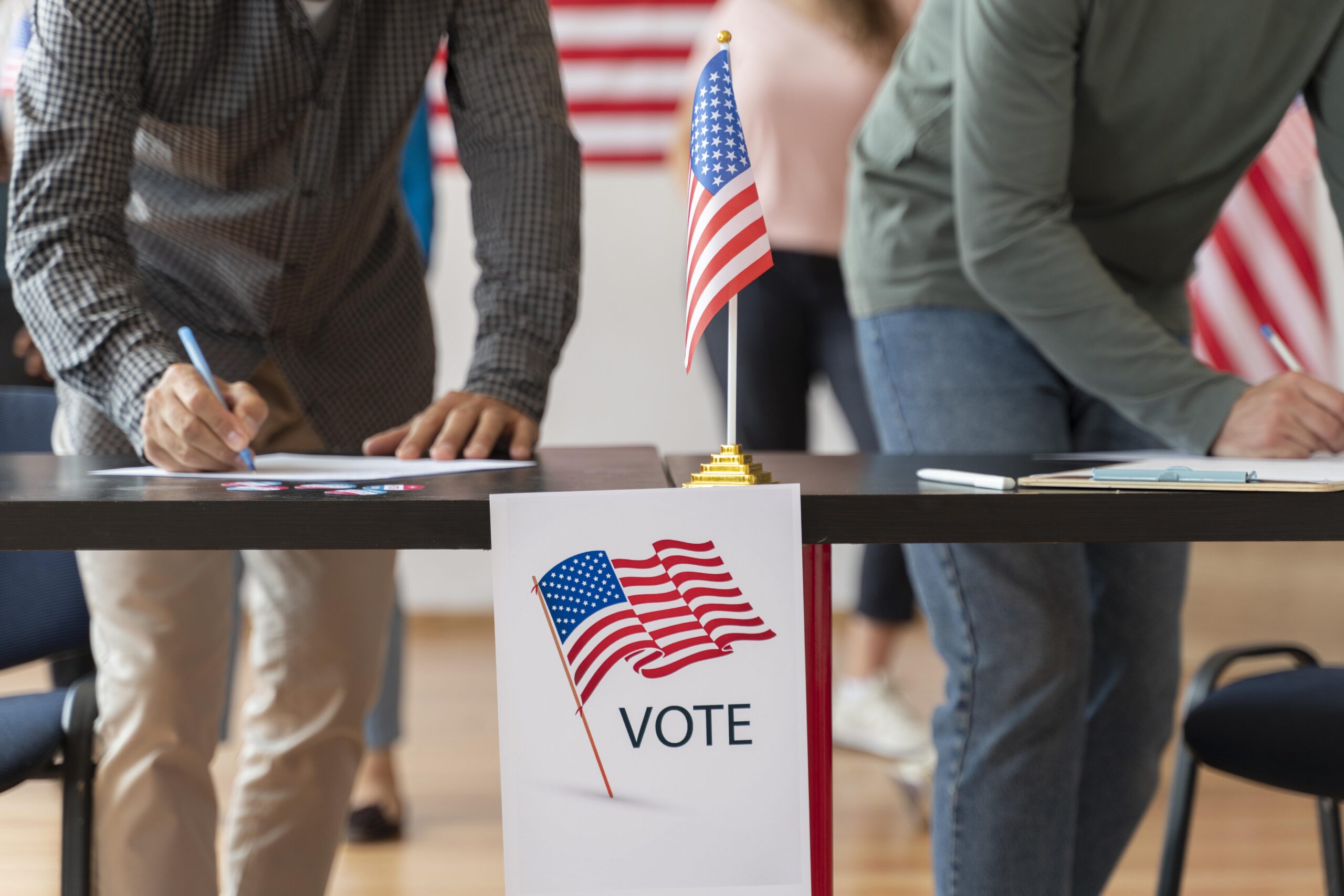Voting is at the heart of American democracy, a powerful tool that shapes the nation’s direction on critical issues like immigration, healthcare, education, and the economy. If you’re a green card holder (lawful permanent resident), you may be wondering whether you’re eligible to participate in this vital democratic process. In this article, we’ll clarify your rights and responsibilities when it comes to voting in the U.S., explore the types of elections that exist, examine the legal risks of voting unlawfully, and outline the path toward gaining full voting rights through naturalization.
Who is Considered a Green Card Holder?
A green card holder, or lawful permanent resident (LPR), is a foreign-born individual who has been granted the legal right to live and work permanently in the United States. While green card holders enjoy many benefits, such as employment authorization, access to certain public benefits, and protection under U.S. laws, they are not U.S. citizens and do not have the full spectrum of civic rights, including the right to vote in federal elections.
Types of Elections in the United States
Before diving into where green card holders can and cannot vote, it’s important to understand the different levels of elections in the U.S.:
- Federal Elections
- Presidential elections
- Congressional elections (Senate and House of Representatives)
- Presidential elections
- State Elections
- Governors
- State legislators
- Attorneys general
- Ballot measures
- Governors
- Local Elections
- Mayors
- City council members
- School board officials
- Local propositions
- Mayors
Each of these elections has different eligibility rules, primarily governed by state laws and the U.S. Constitution.
Can Green Card Holders Vote in Federal Elections?
Absolutely not. Green card holders are strictly prohibited from voting in federal elections, including:
- Presidential elections
- Congressional elections (U.S. Senate and House of Representatives)
According to the Illegal Immigration Reform and Immigrant Responsibility Act (IIRIRA) of 1996, only U.S. citizens, either born in the U.S. or naturalized, can vote in federal elections. Attempting to register or vote as a green card holder can lead to serious consequences, including deportation and denial of U.S. citizenship in the future.
What About State and Local Elections?
In general, most state elections also restrict voting rights to U.S. citizens. However, there are a few exceptions at the local level:
- Some municipalities in Maryland, such as Takoma Park and Hyattsville, allow non-citizens, including green card holders, to vote in local elections, such as school board or city council elections.
- In San Francisco, non-citizens may vote in school board elections, but only if they are the parents or legal guardians of public school children.
However, these exceptions are rare and often controversial. Always check with your local election office before participating in any election.
Consequences of Voting Illegally as a Green Card Holder
If you’re thinking of voting before becoming a U.S. citizen, think again. Voting illegally can have life-altering consequences:
1. Deportation
Under U.S. immigration law, a green card holder who votes unlawfully can be placed in removal proceedings and eventually deported.
2. Denial of Naturalization
If you vote in an election you’re not eligible for, you may be permanently barred from becoming a U.S. citizen, even if you otherwise meet all the naturalization requirements.
3. Criminal Charges
Voting fraudulently can be classified as a federal crime, which may result in fines, imprisonment, or both.
4. Loss of Green Card
In extreme cases, a green card can be revoked for misrepresentation or fraud.
Pro Tip: Even registering to vote without the right eligibility can trigger penalties. Some green card holders mistakenly register to vote when applying for a driver’s license. Always verify your voter status with your local Department of Motor Vehicles (DMV) or election office.
What Rights Do Green Card Holders Have?
Though you cannot vote, as a green card holder, you still have several rights and responsibilities:
- Live and work in the U.S. permanently
- Sponsor certain family members for green cards
- Own property and run a business
- Access to public education
- Legal protection under federal, state, and local laws
- Travel abroad and return to the U.S. (with some restrictions)
Green card holders are also required to:
- File U.S. income taxes
- Carry proof of permanent residency (your green card)
- Renew your green card every 10 years
The Path to Voting: How Green Card Holders Can Become Citizens
If you’re passionate about participating in U.S. elections, the best path forward is to become a naturalized U.S. citizen. Here’s how:
Step 1: Meet the Basic Requirements
To apply for naturalization, you generally must:
- Be at least 18 years old
- Be a green card holder for at least 5 years (or 3 years if married to a U.S. citizen)
- Have continuous residence in the U.S.
- Demonstrate good moral character
- Pass an English and civics test
Step 2: File Form N-400
Submit Form N-400, Application for Naturalization, along with the required documentation and filing fee.
Step 3: Attend Biometrics and Interview
You’ll be scheduled for a biometrics appointment followed by an interview with a USCIS officer.
Step 4: Take the Naturalization Oath
After passing the tests and being approved, you will take the Oath of Allegiance, officially becoming a U.S. citizen, and gaining the right to vote in all elections.
Tip: After naturalization, you should register to vote immediately to ensure you can participate in upcoming elections.
Can Green Card Holders Influence Elections Without Voting?
Absolutely! While you can’t cast a ballot, you can still make your voice heard in other impactful ways:
- Volunteer for political campaigns
- Attend town halls and debates
- Share information on social media (factually and responsibly)
- Donate to political causes (check eligibility first)
- Talk to elected representatives.
Engagement doesn’t always require a vote; your voice still matters.
Common Myths About Green Card Holders and Voting
Let’s clear up some common misconceptions:
Myth 1: Green Card Holders Can Vote in All Local Elections
Only a handful of U.S. cities permit non-citizen voting, and it’s limited to very specific local races.
Myth 2: Voting as a Green Card Holder Is a Minor Offense
Not true. It can jeopardize your entire immigration status.
Myth 3: You Can Vote if You’ve Applied for Citizenship
You must wait until you are officially naturalized and take the Oath of Allegiance before voting.
Myth 4: If You’re Offered a Voter Registration Form, It’s Okay to Register
Many DMVs and agencies offer voter registration forms automatically, but that doesn’t mean you’re eligible. Be cautious.
Final Thoughts
So, can green card holders vote in U.S. elections? The answer is no, not in federal or state elections, and only in very limited local elections. But your journey to becoming a U.S. voter doesn’t have to stop here. If you’re committed to shaping the future of your community and country, the most effective path is to pursue naturalization.
Until then, stay informed, obey all immigration laws, and prepare for your eventual right to vote by understanding the electoral system now.
Frequently Asked Questions (FAQ)
1. Can I vote for the President as a green card holder?
No. Only U.S. citizens can vote in presidential elections.
2. Is it illegal to register to vote as a green card holder?
Yes. Registering without eligibility can result in fines, deportation, or a denial of citizenship.
3. How soon after naturalization can I vote?
Immediately. Once you take the Oath of Allegiance, you can register and vote in the next election.
4. Can I vote in school board elections if I have a child in a public school?
Only in select localities like San Francisco. Check with your local election board.


